Get the weekly SPARTANAT newsletter.
Your bonus: the free E-Book from SPARTANAT.
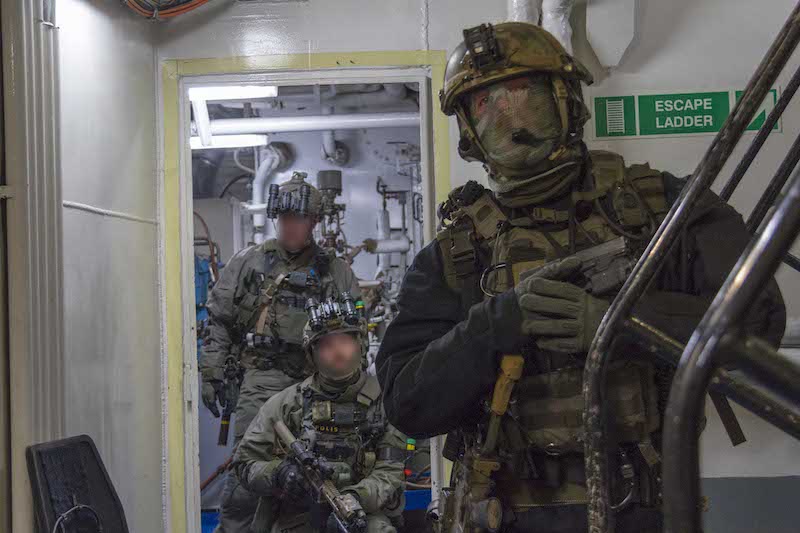
INTERVIEW: "With ATLAS against terror"
Christoph Lippay's book explores the ATLAS network of European Special Forces combating terrorism & violent crime. With firsthand sources and over 350 photos, it provides an authentic insight into the network's history, forums, units, and more.
A book about a specialty? It's okay, doesn't surprise us. A book about 38 units from 31 countries? Christoph Lippay has managed to do that and presents the first book and at the same time the standard work on the ATLAS network of European Special Forces, who together combat terrorism and violent crime. We have already presented the magnificent volume HERE on SPARTANAT. Now, we spoke with Christoph Lippay about the project, his experiences with the different Special Forces, and overall the security situation in Europe.
A look into the book – HERE on ISSUU
SPARTANAT: A book about the ATLAS network, which is not so well known to the public ... Why is that sensational? What do we see there?
Christoph Lippay: Terrorism and organized crime no longer stop at any national borders. Unfortunately, in Europe today, we have to expect terrorist attacks, which can be so complex that they cannot be managed by a national Special Forces unit alone. Europe responded to this challenge back in 2001 by creating the ATLAS network. The new book is dedicated to the 20th anniversary of ATLAS. It was created with the support of ATLAS itself, Europol, and all 38 units. The content comes from firsthand sources. So readers get an absolutely authentic insight into the ATLAS network, which has not been available in this form before. The history, various forums and expert groups, equipment, exercises, and all 38 units of the network are described in detail and accompanied by over 350 photos. Many of these photos have not yet been published and offer fascinating scenes.
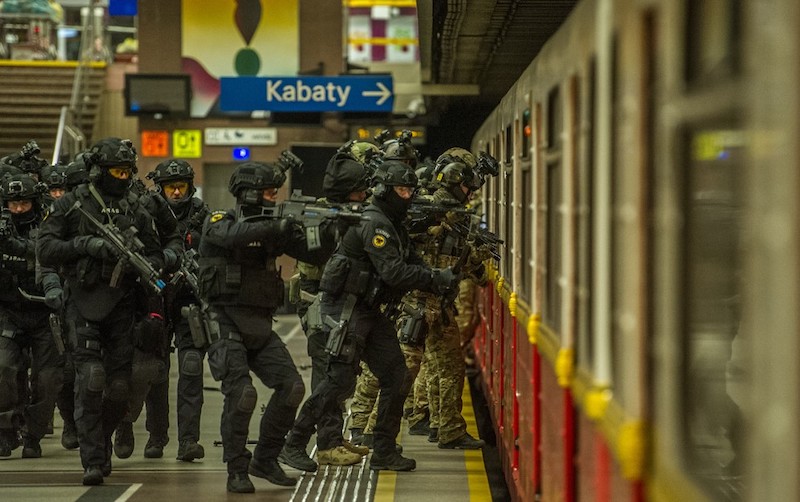
SPARTANAT: So many special units from all over Europe, all in one book. That sounds like a project that an atlas has to handle. How did this come about? How long was the book worked on?
Christoph Lippay: It was indeed an extremely complex and demanding book project. In all 31 countries, along with the special units, a number of different authorities and ministries were involved, so there was initially a great need for coordination. The actual idea for this book arose from my work for the trade magazine TAKTIK + MEDIZIN, of which I am the editor-in-chief. In this role, I already had a very good contact with one of the ATLAS forums. I was immediately impressed by the professionalism and work philosophy. In the spring of 2019, it finally started. It was printed and delivered in October 2021. So, a total of around two and a half years of work went into this 400-page book.
"ATLAS is where expertise in combating terrorism and violent crime is consolidated."
SPARTANAT: When you have seen so much: What connects the units presented? What differentiates them?
Christoph Lippay: The common thread between all units certainly lies in the maxim that together, in the network, strength and expertise in combating terrorism and violent crime can be consolidated. A key factor in this is standardization in many of the techniques and tactics used by the special units. This pursuit of standards within ATLAS is in turn due to the sometimes very diverse differences between the units. These differences begin with their history. There are some relatively young units and numerous others that have existed for around 50 years. There are also many organizational differences. Some units belong to the national police, while others are under the Ministry of Interior or Defense. These units have also been regularly deployed abroad, for example in Afghanistan or Iraq. The differences are therefore very large from several perspectives, making the direct comparison extremely interesting.
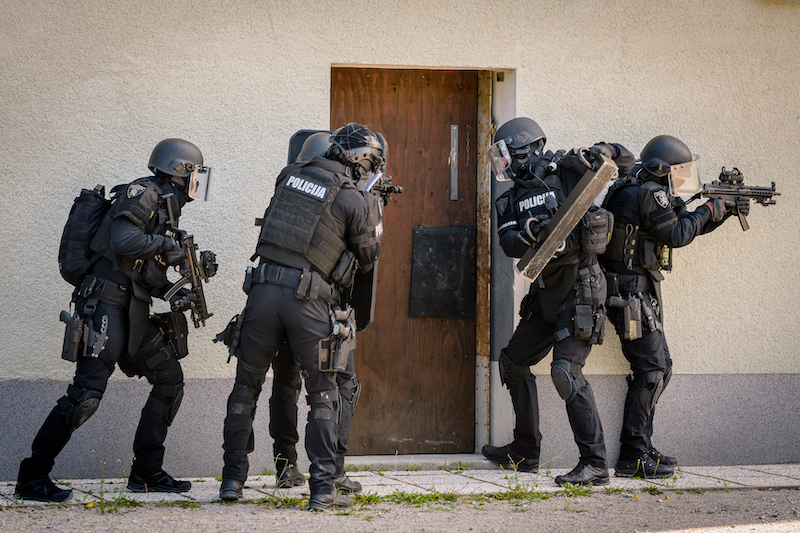
SPARTANAT: Perhaps a question that must be asked alongside the book: How important are special forces for the future of Europe's internal security?
Christoph Lippay: I would describe police special units as the spearhead of a country's internal security. These units directly confront the enemies of a rule of law, be they terrorists or violent offenders. They uphold law and order in extremely dangerous situations. The fact that almost all European units have been significantly expanded in recent years shows that European countries are deliberately relying on these forces and trust in their professionalism. They are therefore indispensable in the security architecture, and due to many developments, they are more important than ever in the future. ATLAS is the central link between the units and has also been extensively supported by the European Commission in recent years.
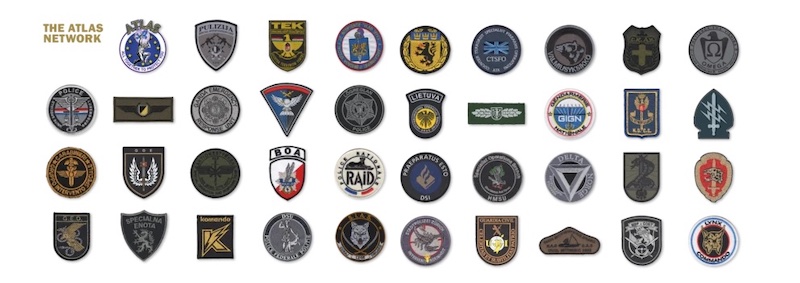
SPARTANAT: In connection with the creation of the book: What was the event that moved you the most?
Christoph Lippay: Interestingly, the full scope of this book project became clear to me only recently, when a long-serving ATLAS official told me that I would now belong to a very small circle of people outside the organization who have gained such deep insights into ATLAS. This trust naturally fills one with a certain sense of pride and immense gratitude. However, without the contributions of many helpers within the units, the book would not have been possible. Therefore, it was this special team spirit that shaped this extraordinary book project.
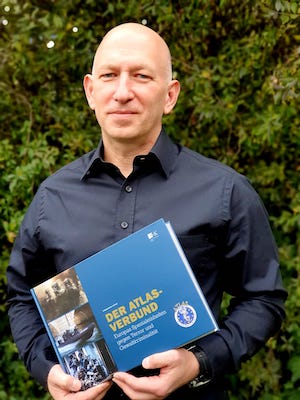
CHRISTOPH LIPPAY
focuses primarily on the area of "Tactical Medicine/Tactical Situations" and initiated the annual symposium "Tactical Situations in Emergency Medical Services" in 2016. In 2018, he founded the specialist journal TAKTIK + MEDIZIN in the S+K Verlag. Through these and other activities, he has good contacts with domestic and foreign special units.
TACTICS + MEDICINE online
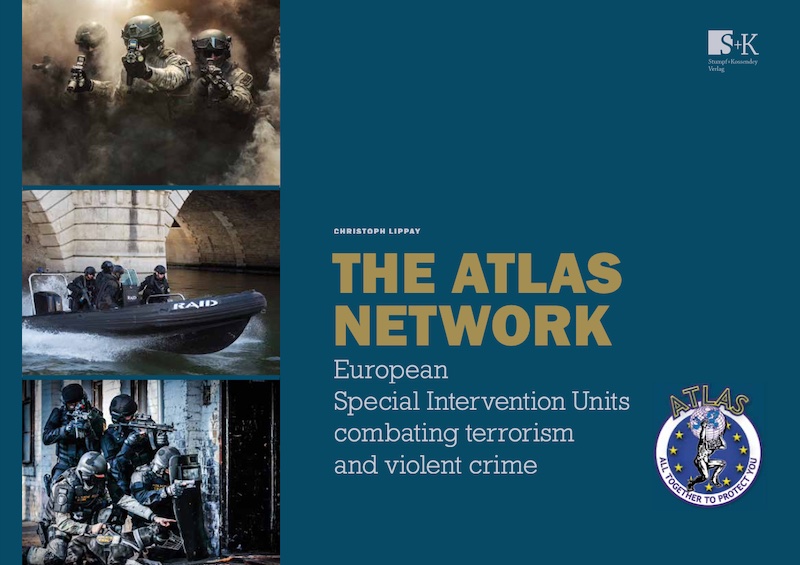
"The ATLAS Network: Europe's Special Units against Terrorism and Violent Crime," by Christoph Lippay, Stumpf + Kossendey Verlag, 2021, 400 richly illustrated pages, 69 euros.
THE ATLAS NETWORK – Direct ordering page for the book
ATLAS on Instagram
SPARTANAT is the online magazine for Military News, Tactical Life, Gear & Reviews.
Send us your news: [email protected]
Ad
similar
Get the weekly SPARTANAT newsletter.
Your bonus: the free E-Book from SPARTANAT.


